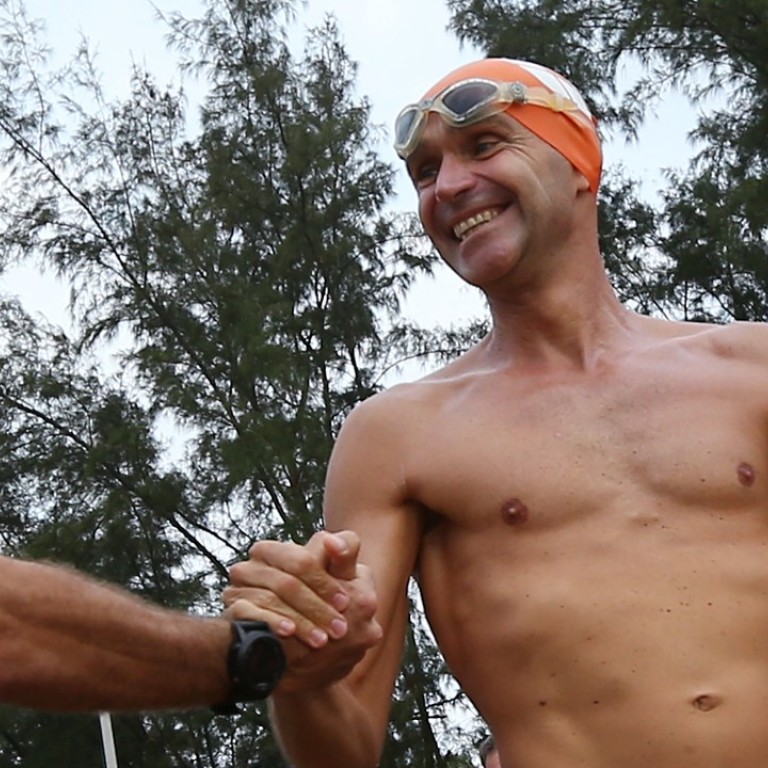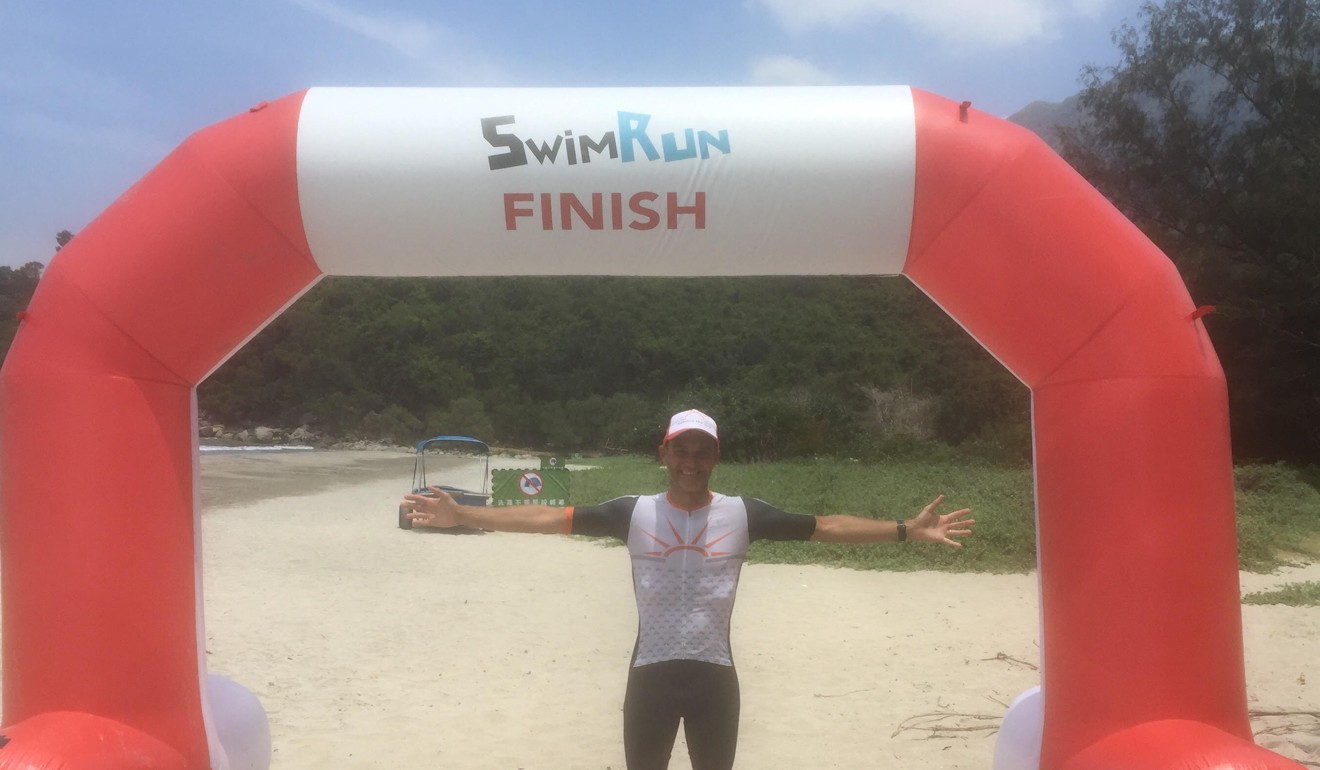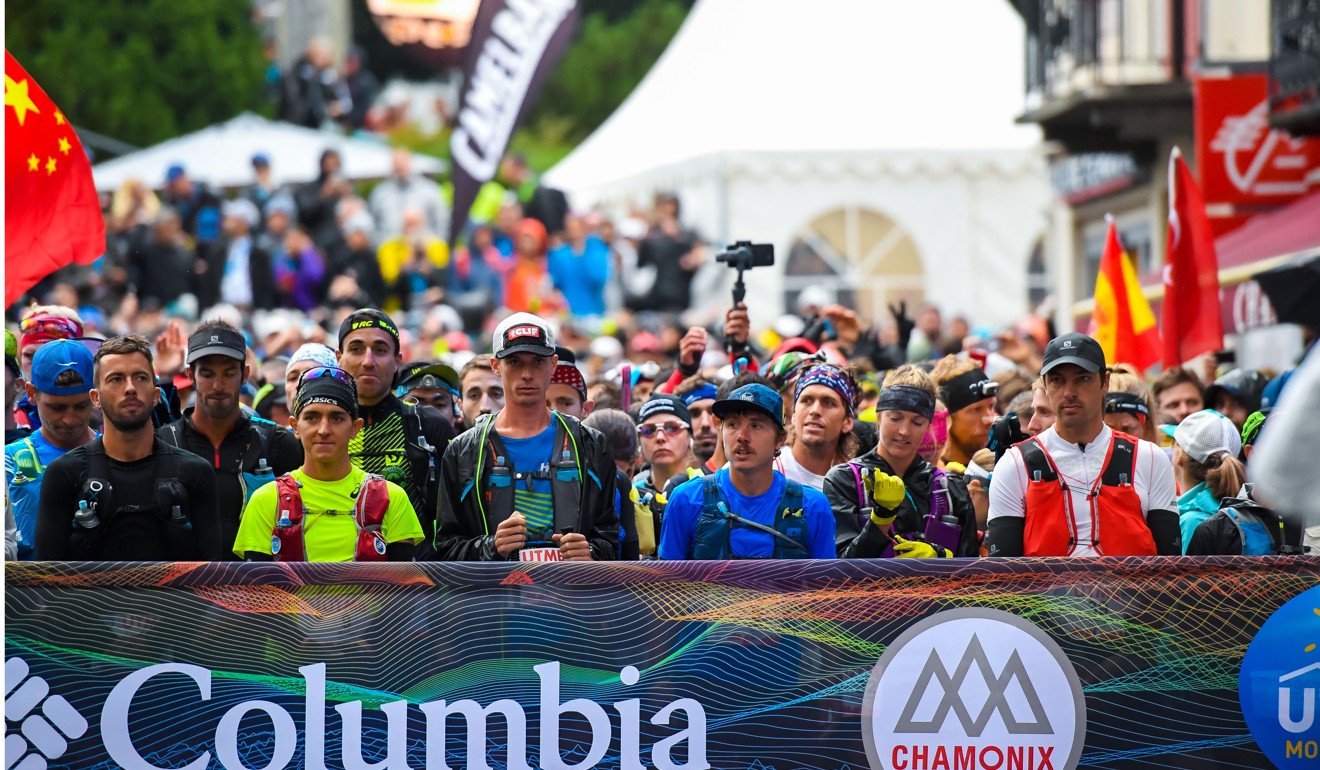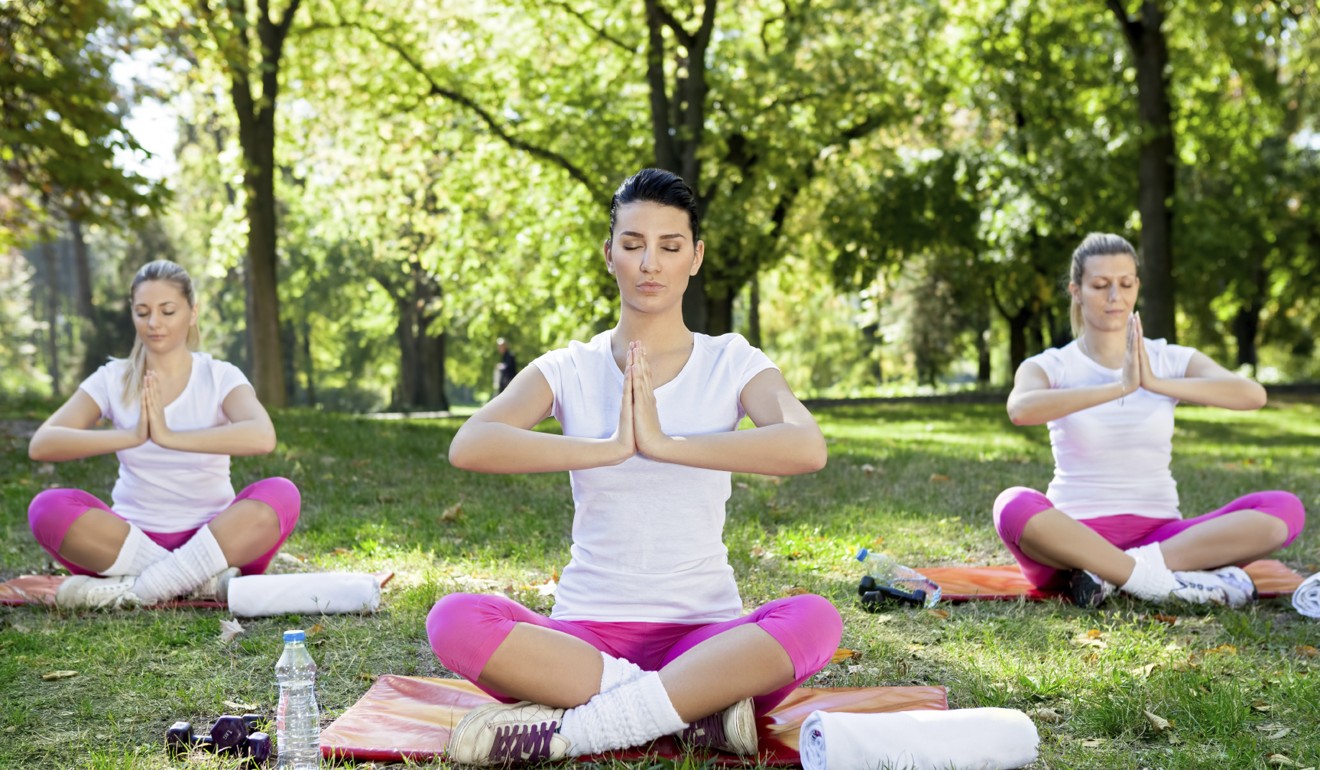
Top tips on how to stay mentally present during running, cycling or swimming from a Hong Kong endurance sports coach
By scanning your body and breath, being grateful and meditating, you can get the most out of your physical performance
When Olivier Baillet stood on the start line of Ironman’s most prestigious event in Kona, Hawaii, he had every right to be nervous.
The Frenchman, now based in Hong Kong, was anything but. Baillet did not even think about the 3.8-kilometre swim, 180km cycle and marathon run to come.
“My way to cope with this is to be in the present moment,” he said. “It shuts down my inner, usually destabilising and demeaning chatterbox.”
Time, money and sacrifice brought him to the start line, but also a mental capacity to ‘stay present’ and not let his mind drift to negative thoughts, impending kilometres and pain.
This mental fortitude did not happen by accident. It is often assumed mental toughness is innate, but much like any other aspect of sport it can be trained.
Baillet, an endurance coach for Beyond The Line, shared his top tips to stay in the moment and produce the most out of your physical performance by using your mind.

Being aware of your breathing and use the ‘scanner’
Unless you’re dying, one thing is for sure: you’re breathing. Your breath is your anchor to reality, no matter what, it is there. When things go wrong around you, when your bike gets a flat or someone in front of you kicks you in the face while swimming, you can always go back to your breath, and focus on it.
Listen to it, feel it, get immersed into it, and progressively you will calm down, regardless of the circumstances, and refocus on your own world and body.
Another grounding practice is scanning your body. It’s easy to lose sight of the important things, like fuel, general care and staying within your physical limit.
Scanning your body – your feet, your legs, your body temperature – making sure the pain threshold indicative of injury is not crossed, is not only a perfect way to keep the focus as sharp as it can be, it can also be a life-saving practice.
And then you should also scan your mind. That means you become an observer of your own self and that detached view of yourself frees you from your own mental chains.
When checking your mental attitude, you may realise that you are overwhelmed by negative thoughts, or that you lose motivation and would rather be in bed.
That is an alarm, and the reason might be in your body and maybe you need to eat, you’re having a heatstroke or you’re becoming hypothermic.
In any case, if you’re the object of your own mind, and if you cannot become the observer, you’re likely to underperform and fail to make the right decisions for your body.

Feeling gratitude for what you do and where you are
To be able to exercise, we need a functioning body and a functioning mind, we need time and money. We need a decent level of health, obviously, but also freedom and peace.
We take all these things for granted, until we lose one, even temporarily.
If we think about how lucky we are, and genuinely feel gratitude for it, it will help motivation. Suddenly, it’s not that hard to get out of bed and face adverse conditions.
Obviously, when we get to race day, the feeling of gratitude should be even bigger, as so many things could have gone wrong before we even reach the start line: racing day should be seen as the reward, and even a ‘bad’ day is in that sense a lucky day.

Acceptance
We cannot control the externalities. We all hope for decent conditions on race day, but sometimes the weather is too wet, too cold, too hot, or the competition is too strong, or your support team is too late. Pain is too uncomfortable (you’re deep into the ‘pain cave’, deeper than you seem ready to accept), fate seems to be against you.
Instead of getting angry, ruminating over and over, or getting desperate, you need to come back to what you can control: your attitude.
Suck it up, accept it, and move on. ‘Embrace the suck’, as endurance athletes sometimes say. Focus on what can be done, here and now, and not on what could have happened instead. Then, almost by miracle, your clear mind and your body will find ways to cope, and maybe even thrive in adverse conditions.

Practise staying in the moment
The race is just the tip of the iceberg, it comes after months or years of training. You need to practise all of these techniques in training. Thus, during the months leading to race day, force yourself to be grateful for what you have, be aware of your body and your breathing and accept the bad days.
There is no miracle in sports, if you do not practise, it will not happen spontaneously.
Meditate
Meditation is a time of stillness when you can practise all these things. When your mind is quiet, it’s easy to work on your ability to be grateful, to focus on your breath, to observe your mind as an object, and to accept and enjoy life as it is.
You can practise as you train but nothing replaces proper meditation, as nothing is as efficient.
